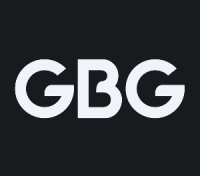GBG’s Global Fraud Report surveyed over 520 businesses in APAC to find out how they are fighting fraud
July 24, 2024 – SYDNEY, Australia – New research from GBG, the leading expert in global identity and location, has revealed that 81% of APAC businesses believe that cross-sector collaboration and intelligence sharing is key to stemming the rising tide of fraudulent criminal activity. The findings are part of GBG’s new Global Fraud Report 2024 which surveyed businesses in Australia, New Zealand, Malaysia, Indonesia, Thailand and the Philippines in financial services, fintech, crypto, banking, retail and gaming to assess the levels and types of fraud, how it is affecting businesses and how are they reacting?
How does cooperation work? And where is it happening?
When it comes to intelligence sharing and collaboration, businesses are already taking action. Over three-quarters (80%) of APAC businesses are currently part of an identity intelligence consortium, which connects transactions occurring around the world and shares international consumer intelligence between businesses, across sectors and national borders. Of those who are not part of an identity intelligence consortium, the majority (91%) believe they should join one.
Barriers to cooperation
More than three-quarters (83%) of APAC businesses surveyed believe that organizations are too concerned about maintaining a competitive advantage to participate in anti-fraud collaboration. 79% believe that global governments are not doing enough to support cross-sector cooperation. This is despite the fact that 76% of APAC businesses say it is extremely difficult to identify fraudsters at the point of entry.
Carol Chris, General Manager, APAC at GBG said: “Sharing consumer intelligence to combat fraud does not mean that a business will lose its competitive edge – this is a myth that needs to be busted, and fast. Businesses do not share raw data within consortia but anonymize patterns and insights on confirmed or suspected fraud.
If businesses are not part of such a group, they risk missing out because they will not benefit from the early knowledge that can prevent crime from being detected and stop fraudsters before they ever enter a business. Alarmingly, more than two-thirds (76%) of APAC businesses say it is extremely difficult to identify fraudsters at the point of onboarding – it is critical that this is reduced.”
Australian organizations want the government to set clear standards
Almost a quarter (24%) of Australian respondents say our local government is not doing enough to help organizations fight fraud. When asked what they think the government should do to help fight fraud, more than half (59%) indicated that setting clear standards for fraud prevention requirements was the top issue. The next issue was supporting organizations at risk of a data breach. Given that 98.9% of respondents were affected by a data breach in the past 12 months, it’s only natural that this is top of mind for more than half of Australian respondents (52%).
Increasing levels of fraud
The GBG report is released against a backdrop of rising fraud, with 69% of Australian businesses surveyed admitting to having experienced known or suspected fraud in the past 12 months. Almost three-quarters (71%) also found that fraud attempts had increased compared to last year. Over three quarters (78%) said there had been a significant increase in the sophistication of fraud attempts over the past year. With that said, 69% of respondents believe that opportunistic and convenience fraud is more of a threat to their businesses than sophisticated fraud, which worries 31% more.
Burnout is common for those who struggle with fraud
One hundred percent of Australian professionals working at risk, fraud or are losing sleep over the risk fraud poses to their organization, with respondents most likely to say insufficient resources (46%), changing tactics used by fraudsters (44%), organizational silos between compliance, fraud and identity teams (44%) and identity verification (42%) keeping them up at night. Meanwhile, Australian respondents are struggling with the biggest challenges in their work around a lack of shared knowledge, such as identifying and stopping fraud at the point of entry on board (32), understanding the latest trends in fraud (31%) and knowing the best tools to use (31%).
Carol Chris concludes: “Shared customer intelligence is a powerful trust-building tool that creates a safer environment and online experience for both businesses and consumers. It is encouraging to see that businesses are embracing this as it keeps them and their users protected from fraud and financial loss. It would also help the high number of industry professionals who report burnout as a result of high levels of fraud. Those businesses that are not cooperating now must do so quickly or risk losing out.“
For more findings and to download the full Global Fraud Report, please visit: https://www.gbgplc.com/the-global-fraud-report-2024/
About research
The research was conducted through an online survey by Censuswide. Censuswide surveyed 407 CXOs, VPs, directors and managers in risk/fraud, operations and compliance roles between April 26 and May 8, 2024 as follows:
- Sectors: Financial services, fintech, banking, insurance, retail, gaming, e-commerce
- Countries (APAC): Australia (213), New Zealand (100), Malaysia (52), Indonesia (52), Thailand (52). Philippines (51)
Throughout the record we respect and employ members of the Society of Market Research, which is based on the ESOMAR principles and are members of the British Survey Council.
